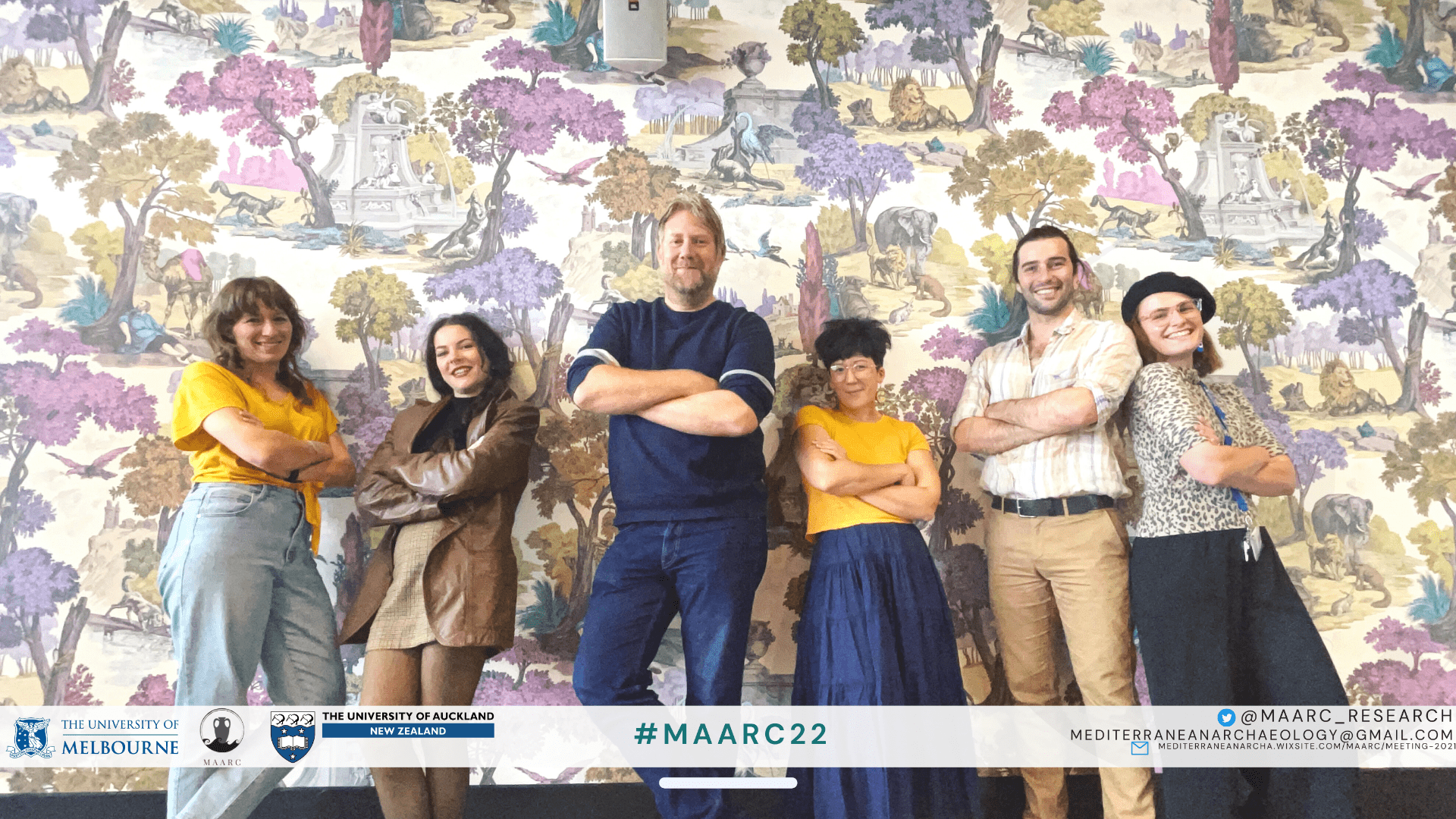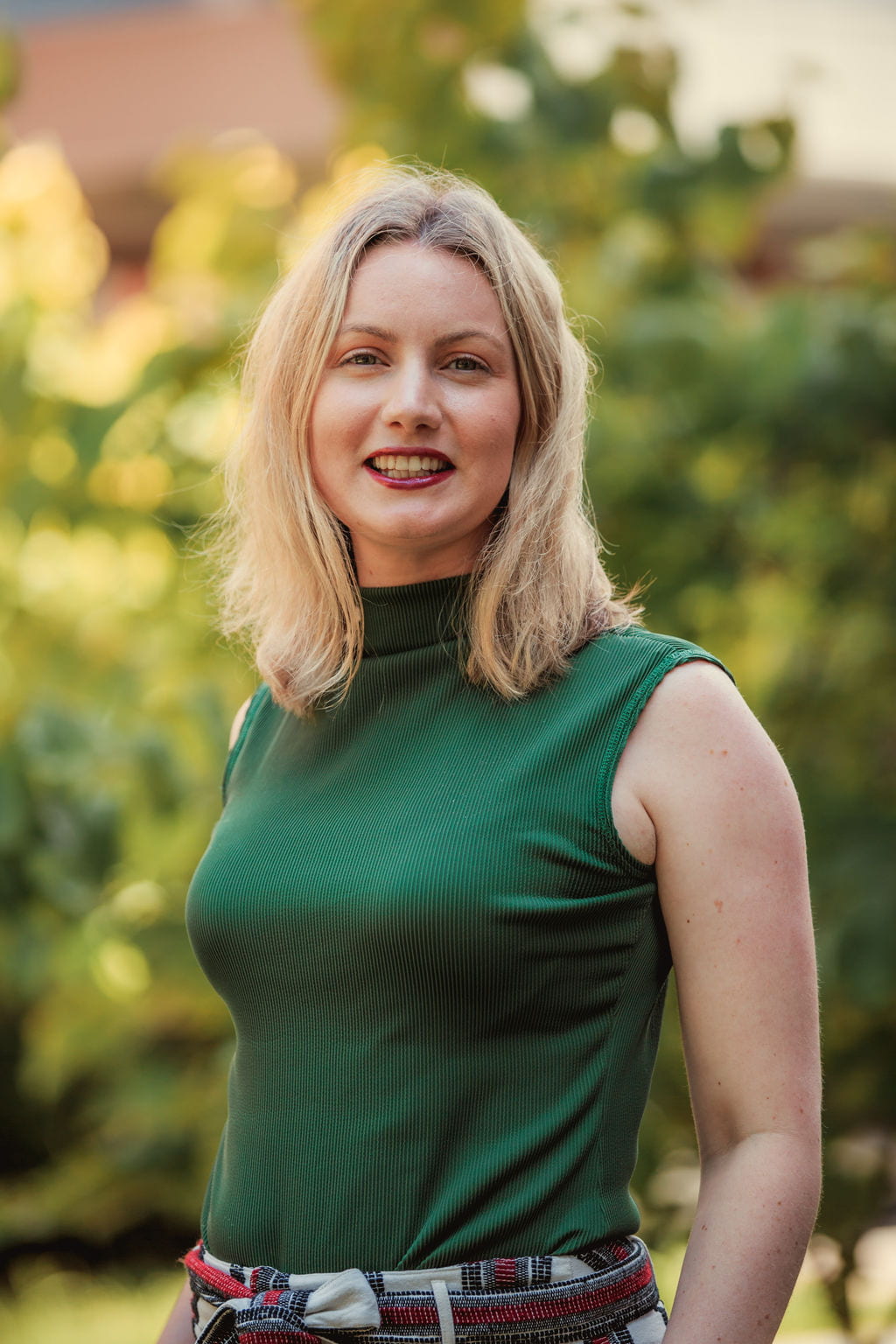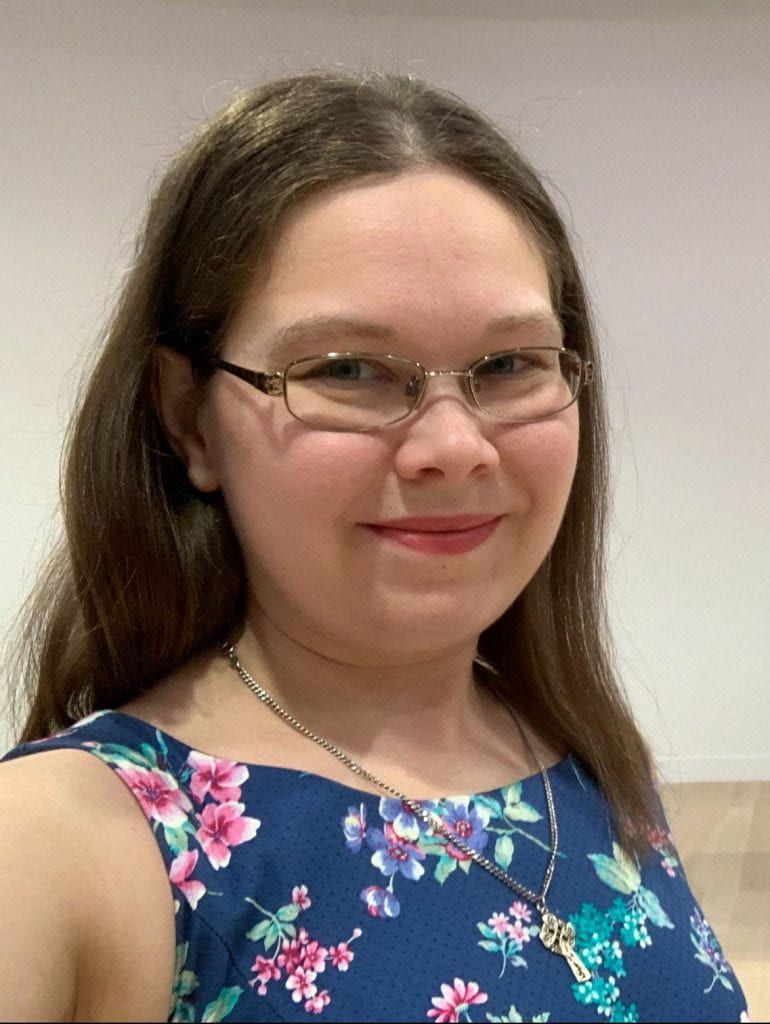
SHAPS Digest (February 2022)
Andrea Cleland (PhD in History, 2019) was interviewed on ABC Radio Gippsland’s breakfast show, Mornings, by presenter, Jonathan Kendall, about the Oral History of Phillip Island Project with the Phillip Island & District Historical Society, and about her work as an oral historian more broadly.
Nat Cutter (PhD candidate, History) published a post on Medieval and Early Modern Orients, ‘News and Maghrebi Diversity in Restoration London‘ about Maghrebi representation in English Restoration-period print culture.
Jonathan Kemp (Grimwade Centre) and his work on Australia’s stone heritage was featured on the University website’s ‘Researcher Spotlight’ series.
David Palmer (Honorary, History) was interviewed by the New York Times (behind paywall) and wrote an article for Korea On Point on the Japanese government’s bid for World Heritage Status for the Sado gold and silver mines complex (a site of Korean forced labour in the 1940s) in the Niigata prefecture on Honshu, Japan, and the Korean President’s response to the nomination.
ABC News featured a story on the work of Robyn Sloggett (Grimwade Centre) and her colleague Dr Vicki Couzens (RMIT), Gunditjmara academic, artist, cultural leader and senior knowledge custodian. This exhibition includes Gunditjmara stone tools from the Leonhard Adam Collection held at the University of Melbourne. As a result of their collaboration these tools were on display in the Arts West building. They are included in a new exhibition on Gunditjmara country at Warrnambool Art Gallery curated by Vicki and her sister, Lisa. Robyn and Vicki discuss their research on the collection and the issues that relate to the repatriation of such material.
Darius von Guttner (Principal Fellow, History) commented on the Russian attack on Ukraine, for ABC Radio Shepparton.
Tony Ward (Fellow, History) published an article in the Conversation about perceptions of corruption in Australia, the effect of perceived corruption on the economy, and the need for a Federal anti-corruption commission.
Appointments
James Lesh (PhD in History, Postdoctoral Research Fellow at Melbourne School of Design) has been appointed Lecturer in Cultural Heritage and Museum Studies at Deakin University.
Welcome to new School Manager Chloe Pearse (who will share the role with Marica Banovac) and new Administrative Assistant, Jesse Taig.

Academic Publications
The Spanish translation of the latest monograph by Ángel Alcalde (History), War Veterans and Fascism in Interwar Europe (Cambridge University Press, 2017) has been published by Publicacions de la Universitat de València (PUV).
 This book explores, from a transnational viewpoint, the historical relationship between war veterans and fascism in interwar Europe. Until now, historians have been roughly divided between those who assume that ‘brutalisation’ (George L. Mosse) led veterans to join fascist movements and those who stress that most ex-soldiers of the Great War became committed pacifists and internationalists.
This book explores, from a transnational viewpoint, the historical relationship between war veterans and fascism in interwar Europe. Until now, historians have been roughly divided between those who assume that ‘brutalisation’ (George L. Mosse) led veterans to join fascist movements and those who stress that most ex-soldiers of the Great War became committed pacifists and internationalists.
Transcending the debates of the brutalisation thesis and drawing upon a wide range of archival and published sources, this work focuses on the interrelated processes of transnationalisation and the fascist permeation of veterans’ politics in interwar Europe to offer a wider perspective on the history of both fascism and veterans’ movements.
A combination of mythical constructs, transfers, political communication, encounters and networks within a transnational space explain the relationship between veterans and fascism. Thus, this book offers new insights into the essential ties between fascism and war, and contributes to the theorisation of transnational fascism.
Reviews:
An excellent work that advances the field of study about the rise of fascism and its relationship with veterans. Alcalde presents an easy to follow narrative filled with intriguing new scholarship. – Kevin Braam, H-Net
Contemporaries and many historians have assumed, generally on the basis of numerous actual examples, that veterans of WWI, individually or as a group or an organization, were ready recruits to fascism, especially in Italy and Germany. Their violent experience of the war at the side of so many who had fallen and their sense that their sacrifice had been betrayed made veterans natural enthusiasts for redemption through extreme nationalism and authoritarianism. Alcalde, a historian of the Spanish Civil War and the Franco regime, firmly explores these assumptions. Recommended. – N. Greene, Choice
The book succeeds in demonstrating the transnational understandings of, and appropriations from, Italian Fascism. … an excellent book. – Chris Millington, European History Quarterly
All in all, War Veterans and Fascism is an important contribution to our understanding of the period between the two wars … this is unquestionably a brilliant and stimulating study. – Marco Mondini, The American Historical Review
Alcalde succeeds in illustrating the connections between radical nationalism and war with the example of veterans’ groups, thereby making an important contribution to the study of fascism as a European phenomenon in the twentieth century. – Pablo del Hierro, The Journal of Modern History
Alcalde takes a central research discussion as a point of departure for a refreshing study … In his view on the Italian case, he brings a lot to the table. As for the European level, his work will inspire new research and discussion.’ – Julia Eichenberg, War in History
Nat Cutter (PhD candidate, History) published a new article, ‘Grateful Fresh Advices and Random Dark Relations: Maghrebi News and Experiences in English Expatriate Letters, 1660–1710′ in the journal of the Social History Society, Cultural and Social History. The article examines information flows between England and the Maghreb – how news was witnessed, gathered, mediated and distributed – to understand how English-speaking expatriates in the Maghreb influenced public perceptions of the other. Using little-known manuscript material and printed news about the Maghreb, it argues that expatriates were instrumental in the detailed, up-to-date and largely polemic-free coverage in seventeenth-century English periodical news, and key players in the contest over representations of European news in the Maghreb. By exploring the everyday processes that governed communication, the paper offers new insight into reciprocal and productive Anglo-Maghrebi interactions in the era of Mediterranean corsairing.
Jonathan Peter Tehusijarana (PhD candidate in History) published an extended review of a new book on the relationship between social movements and democratization in Indonesia, for Inside Indonesia.
Awards & Grants
Nat Cutter (PhD candidate, History) has been awarded an Australian and New Zealand Association for Medieval and Early Modern Studies (AMZAMEMS) ECR Fellowship to study Morocco leather in early modern Britain.
Ines Jahudka (incoming PhD student, History) is the recipient of a Hansen Trust PhD Scholarship in History. Ines’s thesis project is about death, bodies, justice and the local community in early modern England.
 Lacking the types of authority that we rely on today to manage death, the post-mortem process in eighteenth-century England relied on the input and opinions of local parishioners. These men and women made decisions about the cause of death, who (if anyone) might have been responsible, and how the guilty should be punished. These decisions were based upon the layperson’s understanding of the sick or decayed body, their personal knowledge of the people involved, community attitudes towards acts with moral implications such as insanity or suicide, or the role of gender and family. Inquests were a public spectacle, and coronial jurors were encouraged to seek out local gossip in an attempt to clarify what had happened. Death was essentially a community event.
Lacking the types of authority that we rely on today to manage death, the post-mortem process in eighteenth-century England relied on the input and opinions of local parishioners. These men and women made decisions about the cause of death, who (if anyone) might have been responsible, and how the guilty should be punished. These decisions were based upon the layperson’s understanding of the sick or decayed body, their personal knowledge of the people involved, community attitudes towards acts with moral implications such as insanity or suicide, or the role of gender and family. Inquests were a public spectacle, and coronial jurors were encouraged to seek out local gossip in an attempt to clarify what had happened. Death was essentially a community event.
This approach changed with the increasing modernisation of the mid- to late-eighteenth century. Medical knowledge became specialised and commodified, marginalising the layperson’s role in post-mortem decision-making. The term ‘expert witness’ came to be associated with men whose knowledge was derived from intellectual understanding, rather than laypeople with practical experience. Yet, while generally overridden by university-trained men, local opinion still carried weight for juries at inquests and criminal trials.
Jahudka’s project raises interesting questions about the nature of expertise, how we value knowledge systems, and whose voice matters – questions that still resonate with us today.
Jennifer McFarland (MA in History, 2021) has been awarded the Australian Centre for Italian Studies (ACIS) Jo-Anne Duggan Prize for her article, ‘Relics, Reinvention, and Reform in Renaissance Venice: Catherine of Siene’s Stigmata at the Basilica dei Santi Giovanni e Paolo’, published in the journal Renaissance Studies.
 This prize is awarded in memory of Jo-Anne Duggan, a champion of Italian Studies in Australasia, whose written and artistic oeuvre made a distinguished contribution to ACIS and the broader community, and whose life was cut short prematurely. The prize is awarded to a publication by a postgraduate or early career researcher in Italian Studies, broadly defined, within five years of the conferral of their award from an Australian or New Zealand University for a sole-authored work published between 1 January 2019 and 31 December 2020.
This prize is awarded in memory of Jo-Anne Duggan, a champion of Italian Studies in Australasia, whose written and artistic oeuvre made a distinguished contribution to ACIS and the broader community, and whose life was cut short prematurely. The prize is awarded to a publication by a postgraduate or early career researcher in Italian Studies, broadly defined, within five years of the conferral of their award from an Australian or New Zealand University for a sole-authored work published between 1 January 2019 and 31 December 2020.
One of our recent alumni, Jordan Mochi (@mochiJD) was named among the 2021 PAX Indie Winners Showcase for his World War One-themed video game Conscript, in which the player takes on the role of a French soldier navigating life in the trenches.
 Jordan took the subject Great War (HIST20082) in 2020 and further pursued his interest in World War One in the History capstone, Making History (HIST30060). His project for the latter focused on the history of trench warfare and included making substantial improvements to the Wikipedia entry on trench warfare and critically reflecting on how trench warfare has been represented in the historiography. Jordan taught himself coding and game development by watching YouTube tutorials and experimenting. Last year, he was also interviewed by Channel 9 about how his interest in history inspired him to create the game.
Jordan took the subject Great War (HIST20082) in 2020 and further pursued his interest in World War One in the History capstone, Making History (HIST30060). His project for the latter focused on the history of trench warfare and included making substantial improvements to the Wikipedia entry on trench warfare and critically reflecting on how trench warfare has been represented in the historiography. Jordan taught himself coding and game development by watching YouTube tutorials and experimenting. Last year, he was also interviewed by Channel 9 about how his interest in history inspired him to create the game.
Research Higher Degree Completions
The following theses have successfully passed examination:
Elizabeth Tunstall, ‘The Elizabethan Succession Question and Competing Understandings of Monarchy, 1558–1603’ (PhD in History, 2022)
 Queen Elizabeth I ruled England for almost forty-five years (1558–1603) and throughout her reign the succession was a prominent source of debate and anxiety. This thesis surveys the Elizabethan succession question for the entirety of her reign instead of dividing the topic into early or late periods as is typical.
Queen Elizabeth I ruled England for almost forty-five years (1558–1603) and throughout her reign the succession was a prominent source of debate and anxiety. This thesis surveys the Elizabethan succession question for the entirety of her reign instead of dividing the topic into early or late periods as is typical.
An examination of the debate as it appeared in the succession tracts, the writings of Elizabeth, and the numerous manoeuvres of the Privy Council and Parliament, has enabled this thesis to explore the effect of the succession debate upon English considerations of government and royal prerogative during the late sixteenth-century.
Supervisors: Dr Una McIlvenna (Hansen Senior Lecturer in History), Assoc. Prof. Jenny Spinks (Hansen Associate Professor in History)
Jimmy H. Yan, ‘Contentious Routes: Ireland Questions, Radical Political Articulations and Settler Ambivalence in (White) Australia, c1909–23′ (PhD in History, 2022)
This thesis is a transnational history of the ‘Ireland Question’ in the imperial and ethico-political imaginary of radical and labour movements in (‘White’) Australia during the ‘Irish revolutionary period’, broadly conceived. It traces the contestation of ‘Ireland’ as a political signifier, with attention to its constitutive differences, transnational circuitries, utopian investments, relations of recognition and desire, and articulatory practices.
 Where previous studies of Irish nationalisms in Australia have deployed ‘the nation’ as a consensualist category of analysis, this study reinterprets the ‘Ireland Question’ in postnational terms as contentious and within routes. Combining attention to settler-colonial difference with the discursive articulation of political forms, it situates the ‘Ireland Question’ firstly in relation to the political as a signifier of settler ambivalence, and secondly to politics as a social movement. Drawing on archival research in Australia, Ireland and Britain, it analyses personal papers, letters, political periodicals, state surveillance records, political ephemera and pamphlets.
Where previous studies of Irish nationalisms in Australia have deployed ‘the nation’ as a consensualist category of analysis, this study reinterprets the ‘Ireland Question’ in postnational terms as contentious and within routes. Combining attention to settler-colonial difference with the discursive articulation of political forms, it situates the ‘Ireland Question’ firstly in relation to the political as a signifier of settler ambivalence, and secondly to politics as a social movement. Drawing on archival research in Australia, Ireland and Britain, it analyses personal papers, letters, political periodicals, state surveillance records, political ephemera and pamphlets.
Beyond the ‘Ireland Question’ in the imperial labour movement, this study affords serious attention to historical dimensions at the hybrid boundaries of ‘long-distance nationalism’ including political travel performances in Ireland, non-nationalist transnational political networks ranging from feminist to socialist connections, and non-Irish political identification with ‘Ireland.’ It proposes that this unstable play of meanings comprised a heterogeneity of political positions and networks whose convergence during the conjuncture of 1916-1921 was both contingent and politically contested: one that signified in excess of either Australian nationalist historical teleologies or a coherent ‘transnational Irish revolution.’
Supervisors: Prof. Sean Scalmer (History), Prof. Joy Damousi (History)
Projects
A new student-led journal, Humans 2.0, explores the intersections between science and humanity in an interdisciplinary way. The editorial board brings together undergraduates studying a range of disciplines in Arts and Science and invites submissions from students in all subjects across the Arts and Sciences. This initiative arose out of a new University Breadth subject Designer Humans – Prospects & Perils (UNIB20024), co-taught by the School of Biomedical Sciences and SHAPS, and led by Saw Hoon Lim (Biomedical Sciences), with contributions by Michael Arnold and Klaus Jahn in SHAPS.
Feature image (L–R): Emily Simons, Lily Nash, Gijs Tol, Emily Tour, Tom Keep, Madaline Harris-Schober from the 2022 Mediterranean Archaeology Australian Research Community Meeting organising committee. The event, held from 31 January – 2 February will be reported on soon in Forum.